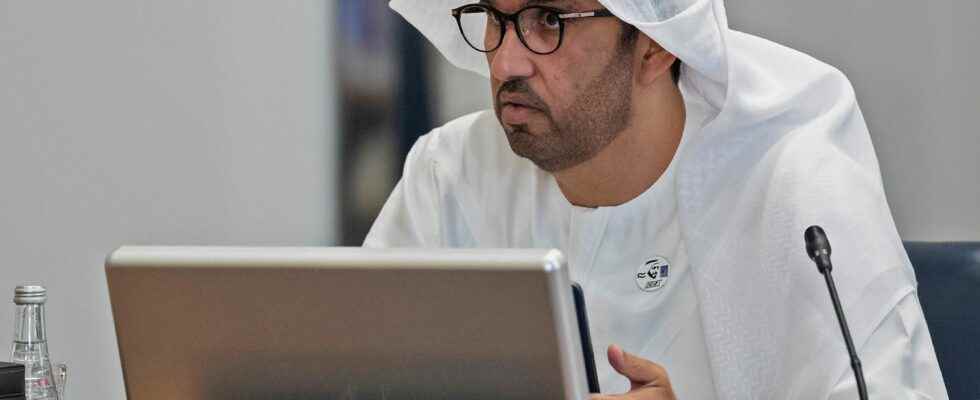The appointment of Sultan Ahmed al-Jaber, CEO of the first oil company in the United Arab Emirates (UAE), at the head of COP28 does not seem to achieve consensus. In addition to being the head of ADNOC (Abu Dhabi National Oil Company) and Masdar, a company specializing in renewable energies, Sultan al-Jaber is Minister of Industry and special envoy for climate change. According to a press release published this Thursday, January 12 by the official WAM news agency, he will be the first CEO to chair a UN climate conference. Organized in Dubai from November 30 to December 12, the COP will establish the first global assessment of the evolution and implementation of the Paris Agreement. But the designation of Sultan Ahmed al-Jaber makes many climate experts cringe.
Because despite his significant commitment to the fight against global warming in recent years – he already led the Emirati delegation at the two previous COPs, including a delegation of a thousand participants – many specialists denounce “a scandalous conflict of interest” like Tasneem Essop, the director of the organization Climate Action Network International. “Ahmed al-Jaber cannot chair an organization responsible for combating the climate crisis when he is responsible for an industry that is itself responsible for the crisis,” she considers. Asked by L’Express, political scientist François Gemenne, co-author of the IPCC report and author of Ecology is not a consensus (Editions Fayard, 2022) believes that the new president should even “resign to avoid any conflict of interest.” Among the other risks surrounding such an appointment, that of greenwashing and the delay of negotiations. Because “the best way to slow down or derail the discussions on the climate is to organize the conference yourself”, according to François Gemenne.
Main oil exporter
At a time when the objective is to limit global warming to 1.5 degrees Celsius, other experts such as Rachel Kyte, professor of sustainable development and dean of the Fletcher School of Tufts University in the United States, believe that we can no longer afford to “develop fossil fuels”. The Gulf country, which is one of the main oil exporters in the world, pleads for a gradual exit from hydrocarbons. However, he estimates that more than 600 billion dollars per year will be needed in the oil and gas industry by 2030 to meet demand.
The Emirates sent the largest contingent of industry lobbyists to COP27 in November in Egypt. An edition which allowed the adoption of a resolution on the compensation of the poorest countries for the damage caused by climate change. But it failed to accelerate the reduction of greenhouse gas emissions, to maintain the objective of limiting global warming. And the issue of less use of fossil fuels was barely mentioned in the texts.
“We cannot organize COPs only between virtuous countries”
For the COP28 presidency, the challenge will therefore be to succeed in bringing together the various countries around stricter and more effective action “while suggesting to some to stop producing under the pretext that the production of the UAE is sufficient, comments the But we no longer have time for contradictory messages” from Sultan Ahmed al-Jaber, who assures us that the UAE will bring “a pragmatic, realistic and solution-oriented approach”. Even going so far as to admit that “climate action is a huge economic opportunity for investment in sustainable growth. Financing is the key.”
The specialist in environmental and climate issues, François Gemenne, has a more nuanced point of view on this appointment. “Although it may seem laughable or even shocking, it can be useful. We cannot organize COPs only between virtuous countries, it is essential to bring the fossil fuel producing countries to the negotiating table to advance the things faster,” he said. Last element to take into account: if the influence of al-Jaber as president of COP28 will be significant, only the 195 countries of the conference will be able, together, to make a decision.
